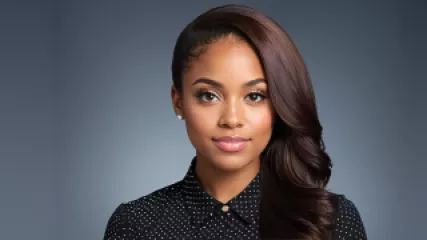Challenging Traditional Gender Roles: An Interview with Gender Equality Advocate
Challenging Traditional Gender Roles: An Interview with Gender Equality Advocate Ariana Ford
In today's ever-evolving social landscape, the topic of gender roles has become increasingly important and complex. As society continues to challenge long-held beliefs and traditional norms, we had the opportunity to sit down with Ariana Ford, a passionate advocate for gender equality, to discuss the impact of these shifts and explore ways to create a more inclusive and equitable future.
The Roots of Traditional Gender Roles
Ariana Ford's journey into gender advocacy began at a young age, as she witnessed firsthand the limitations and constraints imposed by traditional gender roles. "Growing up, I was constantly exposed to the idea that certain behaviors, interests, and aspirations were 'appropriate' or 'inappropriate' for my gender," she reflects. "It was frustrating to see the ways in which these rigid expectations could stifle personal growth and limit opportunities."
She explains that the origins of traditional gender roles can be traced back to historical and cultural factors, often rooted in patriarchal structures and societal norms. "Historically, gender roles were largely shaped by the division of labor within households and communities," Ariana says. "Men were often expected to be the primary breadwinners and decision-makers, while women were relegated to domestic duties and caregiving responsibilities."
These gender-based expectations, she notes, were further reinforced through socialization, education, and media representations. "We've seen how these ingrained beliefs have persisted over generations, shaping the way we perceive and interact with one another, often in ways that limit individual potential and perpetuate inequalities."
Challenging Stereotypes and Expanding Opportunities
Ariana's work as a gender equality advocate has focused on challenging these deep-seated stereotypes and expanding opportunities for individuals of all genders. "One of the key aspects of my work is to raise awareness and foster dialogues that challenge the notion of rigid gender roles," she explains. "I believe that everyone, regardless of their gender identity, should have the freedom to pursue their passions, develop their skills, and make choices that align with their authentic selves."
This approach, Ariana emphasizes, is not about dismissing or disregarding gender entirely, but rather about recognizing the inherent diversity and fluidity within the human experience. "Gender is a complex and multifaceted aspect of our identities, and it's important to acknowledge and celebrate the unique perspectives and contributions that people of all genders bring to the table."
Through her advocacy work, Ariana has championed initiatives that promote gender-inclusive education, challenge gender-based biases in the workplace, and empower individuals to challenge societal expectations. "It's about creating spaces where people feel empowered to explore their interests, develop their talents, and shape their own paths, without being constrained by outdated notions of what it means to be a man or a woman."
Addressing the Emotional Intelligence Factor
One area that Ariana is particularly passionate about is the connection between gender roles and emotional intelligence. "Historically, the expression of emotion has often been seen as a 'feminine' trait, with men being encouraged to suppress or downplay their emotional responses," she explains. "This has had far-reaching consequences, not only in terms of mental health and well-being but also in how we approach problem-solving, decision-making, and interpersonal relationships."
"Embracing and cultivating emotional intelligence, regardless of gender, can lead to more empathetic, collaborative, and nuanced approaches to the challenges we face as individuals and as a society," Ariana asserts. Ariana Ford, Gender Equality Advocate
By challenging the notion that emotional expression is a "weakness" or a "feminine" trait, Ariana and her team aim to empower individuals of all genders to embrace their emotional capacities and leverage them as strengths. "When we allow ourselves to tap into our emotional intelligence, we unlock new avenues for personal growth, meaningful connections, and collective problem-solving," she says.
The Role of Intersectionality
In her work, Ariana also emphasizes the importance of intersectionality – the recognition that gender-based inequalities often intersect with other forms of marginalization, such as race, class, sexual orientation, and disability. "It's crucial that we approach the issue of gender roles with an intersectional lens, acknowledging the unique challenges and experiences of individuals who face multiple layers of discrimination and oppression."
By considering these intersections, Ariana and her team have developed programs and initiatives that address the nuanced and multifaceted nature of gender-based challenges. "We've seen how traditional gender roles can be amplified or compounded by other aspects of a person's identity, and it's our responsibility to ensure that our efforts to promote gender equality are inclusive and responsive to these realities."
Envisioning a More Equitable Future
As Ariana looks towards the future, she remains optimistic about the potential for meaningful change. "We've witnessed remarkable progress in recent years, with more individuals and communities challenging the status quo and embracing a more fluid and inclusive understanding of gender," she says. "However, there is still much work to be done to dismantle the deeply entrenched gender norms and create a society where everyone can thrive, regardless of their gender identity."
Ariana's vision for the future involves fostering educational initiatives, policy changes, and cultural shifts that empower individuals to explore their authentic selves and challenge the limitations imposed by traditional gender roles. "It's about creating an environment where gender is no longer a barrier to personal growth, professional advancement, or emotional well-being," she affirms. "Where individuals can freely express themselves, pursue their passions, and contribute to the collective progress of our society."
Through her unwavering dedication and tireless efforts, Ariana Ford continues to inspire and mobilize communities to reimagine the possibilities beyond the confines of traditional gender roles. "By embracing the diversity and fluidity of gender, we can unlock new pathways to empowerment, inclusion, and collective flourishing," she concludes. "This is the future we must strive for, and I'm honored to be a part of this transformative journey."






